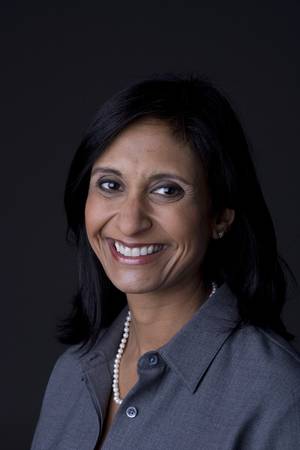The findings suggest that "we, as physicians, may not be adequately educating our patients about the risk for recurrent disease," said Dr. Jyoti D. Patel, who moderated the press conference.
In general, women with localized breast cancer in one breast have less than a 1% chance of developing a new cancer in the unaffected breast and an 8% chance of recurrence in the affected breast or a nearby lymph node. The risk for developing a new cancer in the contralateral breast rises to approximately 10%-15% if the patient has a history of breast or ovarian cancer in two or more primary relatives, with a similar or slightly greater increased risk from a positive genetic mutation, Dr. Patel estimated. Having both clinical risk factors confers a 10- to 20-fold increase in risk.
Unfortunately, many women overestimate their risk of developing breast cancer in the contralateral breast and undergo unnecessary surgery, she commented. This study suggests that physicians re-examine how they communicate with their patients regarding the decision to undergo prophylactic mastectomy.
"Many women fear recurrence, and they also fear surveillance. They worry about, if they’re 35 years old, what a lifetime of screening for the contralateral breast might look like if they end up getting multiple biopsies. So how we put that in perspective for our young population will become vitally important," Dr. Patel said.
Dr. Patel, a thoracic oncologist at Northwestern University in Chicago, is a member of ASCO’s Cancer Communications Committee.

